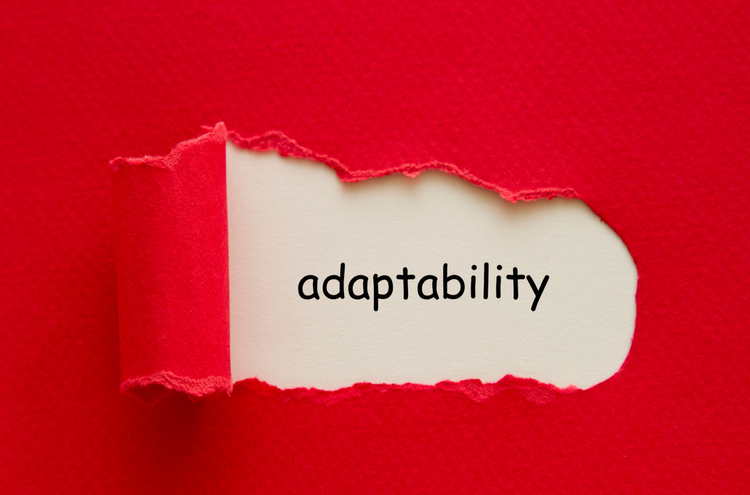Did you know that according to IMDb-based statistics, only 30% of actors make it to their 2nd role, and fewer than 1% play more than 30 roles during their careers? Shocking, isn’t it?
But why is that? Why is it so difficult to work in the performing arts that make most actors give up before time?
I have been around for nearly 25 years in entertainment, and retrospectively I’ve been giving a lot of thoughts about the whys and hows. I am certainly considered a successful actress, even if success is relative and based on personal values.
Here is what I found: “AQ.”
We all have heard of the Intelligent Quotient (used to determine cognitive abilities and intellectual levels) and Emotional Quotient (the ability to understand and manage emotions in positive ways to relieve stress, communicate effectively, empathize, overcome challenges and defuse conflict). Adaptability Quotient, instead, is a recently rediscovered critically important skill to make a difference between excellence and extinction! Uhh.
Measuring one’s ability to adapt to rapidly-changing demands, like relocating for a film shoot or a tour, is an essential first step in dealing effectively with the industry’s unpredictable and uncertain schedules and standby-based nature.
Even if it’s easier to fall back on the things that have made us successful in the past or rely on the things that drive our day-to-day performance, adaptability requires us to defy and challenge our old beliefs and form new ones. The problem is that sometimes, these old beliefs are the very things that made us successful in the first place. Our brains don’t like adaption. Adapting to new circumstances in a business is crucial, and old habits die hard – especially ones that have contributed to our previous success. So our brains want to find “evidence” and self-validation that justifies keeping old beliefs and methods intact. But that is not adaptability. Instead, adaptability is developing the mental agility to change your most strongly-held thoughts if they are not serving you anymore.
Easier said than done.
Adaptability is difficult to do, yet so important. For the general population, the world is relatively stable and predictable. But film industry trends and new technologies adding to global competition have combined to upend the business. In this industry of high stakes and constant uncertainty, more and more actors and filmmakers are finding competitive advantages in capabilities that stimulate rapid adaptation.
So instead of being good at one thing, actors must be good at learning new things.
Those who thrive quickly detect and act on weak signals of change. They work out how to experiment rapidly and frequently with processes, approaches, and strategies. They rapidly acquire new skills to manage complex platforms and new systems in an increasingly interconnected world.
Here are six things you can begin doing today to give yourself a competitive advantage by increasing your adaptability:
- ALTERNATIVES: if you dislike something, require a proposal for alternatives. This improves cognitive flexibility.
- FORESEEING: Ask yourself questions encouraging you and your team to think about what unforeseen events can happen during a job and prepare for them – not just inquiring what your rivals are up to.
- QUESTIONING YOURSELF: Ask yourself questions about what you think you “know.” For example, are there old beliefs that it is time to change?
- PLANNING PROCESS: Spend time reflecting on a well-thought-out strategy that can take your career to the next level. What are you neglecting, forgetting, denying, overlooking, procrastinating, or under-exploiting? What do you not know?
- THREATS: Risks to your career is an important part of your planning process, and you should address them with an initiative. For example, do you have time to research and understand your market? Do you handle possible future threats with the same passion as yesterday’s performance?
- PACE: Increase your rhythm and speed – make annual, monthly, and weekly planning faster. Learn to be time efficient with yourself and others. Consider transforming all you do into a “business” activity that takes minutes, not hours. Do not spend too much time dwelling on things out of your control. Let go.
My tips
- Think about new ways to reach your goal.
- Challenge yourself to question what you do not know.
- Shift gears with no complaints.
- Invent new uses for old ideas.
- Welcome new trends instead of getting stuck.
- Reach for help if needed and acknowledge assistance.
- Experiment and try new ideas and possibilities.
- Celebrate your wins but immediately after, set a new challenge.
- Consider failures as the direct road to success (I failed at 90% of my auditions).
- Rewire your brain and be grateful if you don’t book a job – it wasn’t meant for you.
Namaste,
Andrea

Recent Comments